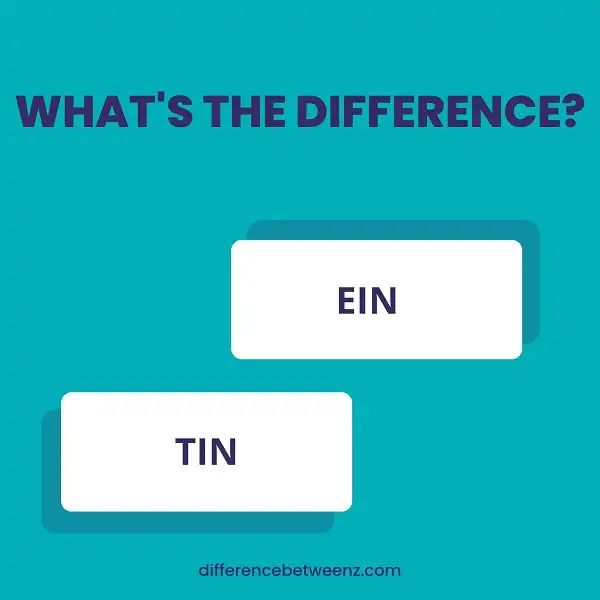If you’re a business owner, then you’re likely familiar with the importance of having an EIN (Employer Identification Number) and TIN (Tax Identification Number). But do you know the difference between the two? Below we’ll outline what each number is used for, and when you need to use each.
What is EIN?
An EIN is a unique nine-digit number assigned by the IRS to identify a business entity. It is also referred to as a Tax Identification Number (TIN). The primary purpose of an EIN is to ensure that businesses comply with tax laws and to prevent fraud. Although an EIN is not required for all businesses, it may be required when filing taxes or applying for business licenses. There are a variety of other situations in which an EIN may be needed, so it is important to check with the IRS or your accountant to determine if you need one. Applying for an EIN is a simple process that can be done online, by mail, or by fax. Once you have obtained your EIN, you will need to keep it in a safe place as you will need to use it any time you file taxes or apply for business-related licenses or permits.
What is TIN?
TIN is an acronym that stands for Taxpayer Identification Number. It is a nine-digit number assigned by the IRS to businesses and individuals for the purpose of tax filing and reporting. TINs are also used by banks and other financial institutions to identify their customers. There are two different types of TINs: Social Security Numbers (SSNs) and Employer Identification Numbers (EINs). SSNs are issued to individuals, while EINs are issued to businesses. TINs are typically printed on tax forms, such as W-2s and 1099s. They are also required on many financial documents, such as loan applications and bank account opening forms. TINs play an important role in ensuring that taxes are properly paid and reported. They also help to ensure that businesses and individuals are correctly identified on financial documents.
Difference between EIN and TIN
Many people confuse the terms “EIN” and “TIN.” While these acronyms may sound similar, they actually refer to two different types of identification numbers. An EIN, or employer identification number, is a nine-digit code that is assigned to businesses by the IRS. This number is used for tax purposes and is required for businesses that have employees. A TIN, or taxpayer-identification number, is a nine-digit code that is assigned to individuals by the IRS. This number is used for tax purposes and is required for taxpayers who file individual income tax returns. While EINs and TINs are both issued by the IRS, they serve different purposes and are used in different situations. As a result, it’s important to know the difference between these two types of identification numbers.
Conclusion
The biggest difference between an EIN and a TIN is that an EIN is for businesses, while a TIN is for individuals. An EIN is also used to track business income and expenses, while a TIN is not.


